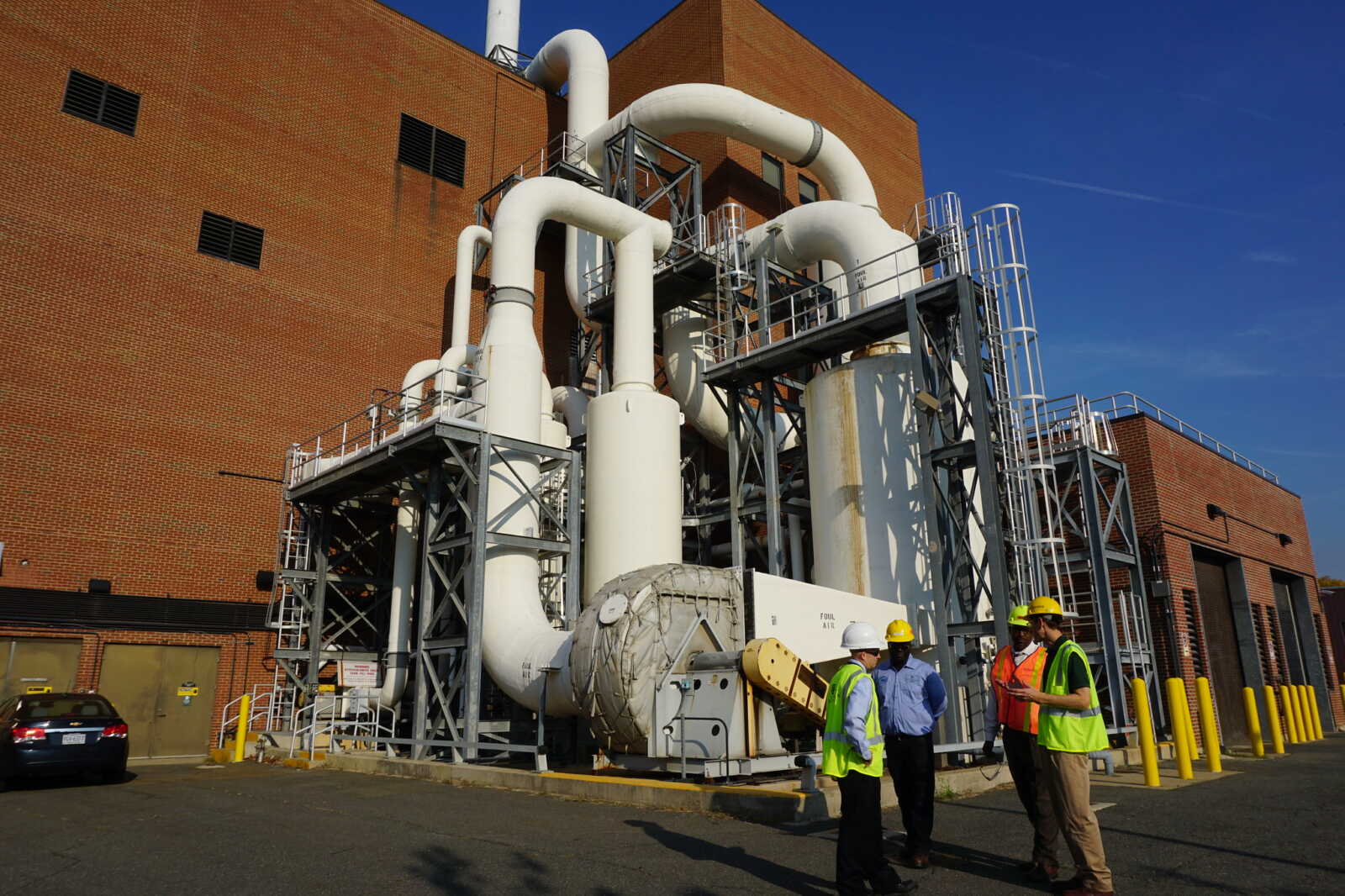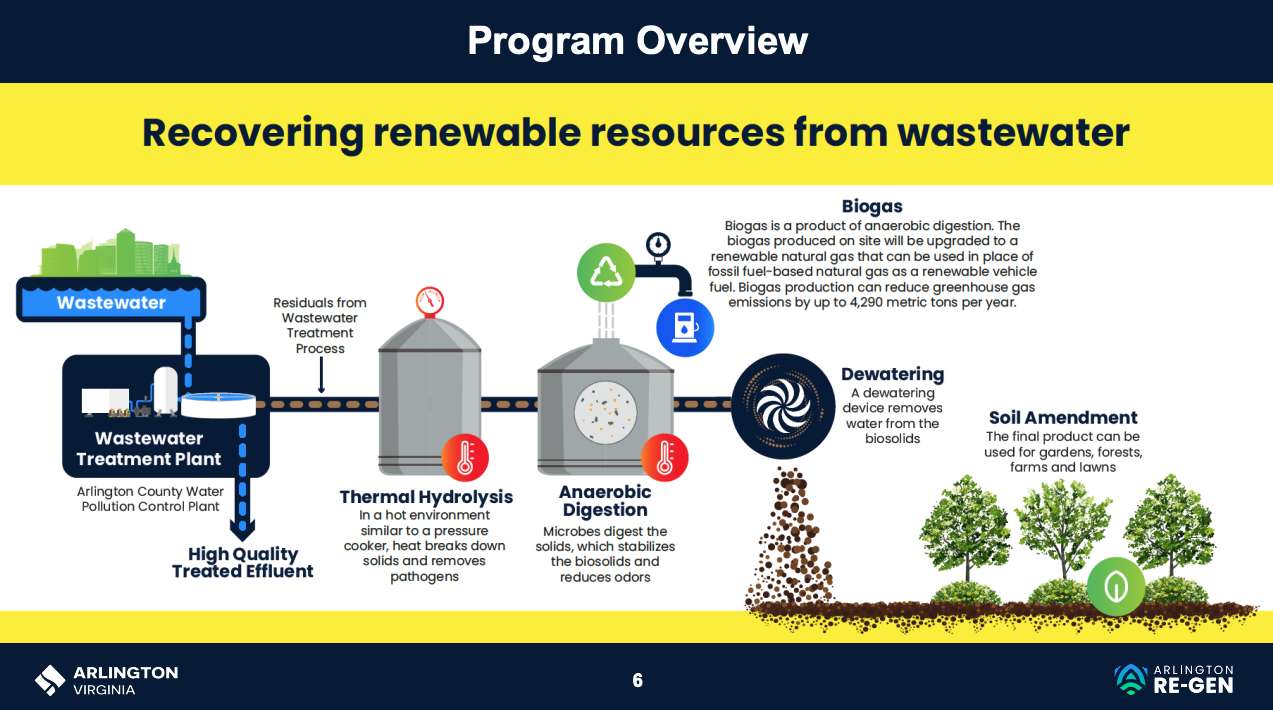
More dirty details have emerged in the county’s $175 million plan to start using sewage for consumer-friendly fertilizer and renewable energy.
The first step is a $32 million budget authorization, set to be considered by the Arlington County Board this Saturday, to begin new upgrades the Arlington County Water Pollution Control Plant.
The county says the upgrades are overdue. The plant currently relies on solids handling processes that date back to the 1950s through 1990s. Irritating fumes sometimes force staff to use respirators, according to a county report.
“The facilities that thicken, store, dewater, and stabilize the residuals are beyond their useful life and break down frequently,” the report says.
All that is supposed to change.
Better sludge storage tanks, improved odor control systems and anaerobic digesters all play a role in the county’s plans to turn sewage into fertilizer and harness the natural gas byproduct for energy. Additionally, while Arlington sewage byproducts already fertilize agricultural land elsewhere in the state, better equipment will make it possible to either sell the county’s biosolids as a retail product or make them available to residents.
“The upgraded processes will produce a higher quality biosolids product as well as renewable natural gas, which will reduce the County’s dependence on fossil fuels,” according to the report.

Arlington wouldn’t be the first municipality to sell its processed sewage to consumers. Anyone who enriches their garden or lawn using the fertilizer brand Milorganite does so using treated sewage from Milwaukee.
The county is budgeting $175 million for all the upgrades and changes, plus an additional $23 million in soft costs, bringing the total budget to nearly $200 million.
The bulk of the funding comes out of $510 million in bonds that Arlington voters approved in 2022. This project is part of a host of initiatives, upgrades and maintenance projects that make up the county’s 2023-32 Capital Improvement Plan.
Staff have discussed the project with community members since 2015, the county report notes. People near the Water Pollution Control Plant, near the Arlington-Alexandria border and west of Route 1, have raised concerns about noise and vibrations that construction might cause, as well as possible emissions.
The county has pledged to use techniques to minimize impacts on the neighborhood when possible, per the report. Following stakeholder concerns, the county also nixed plans to burn the biogas byproduct to generate electricity onsite. It will instead clean and inject the resulting natural gas directly into the Washington Gas pipeline.
Photo via Arlington Dept. of Environmental Services/Flickr

